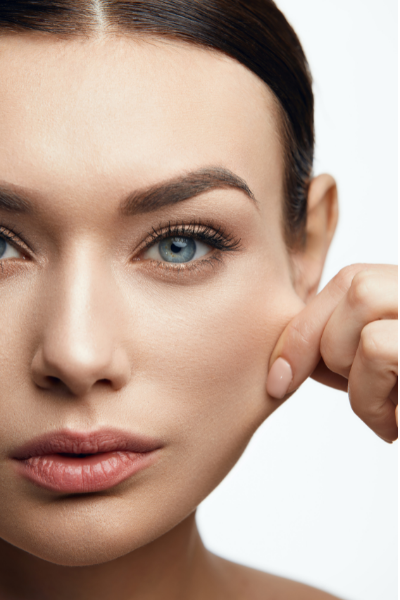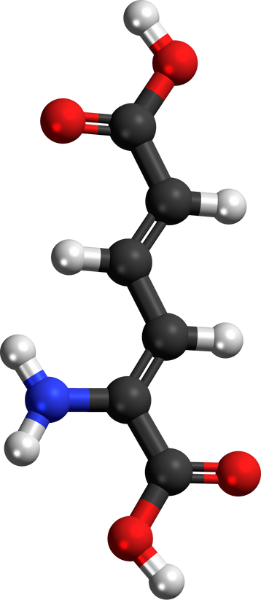
If you’re like me and you’ve taken collagen only to have amazing results, you may be yearning to learn everything you can about this protein. There’s so much more to it than you may think, and it’s doing wonderful things for your body!
In today’s article, I want you to learn all there is to learn about our favorite protein. That’s why I’ve come up with a list of 25 amazing fun facts about collagen. I bet you don’t know all of them!
Check them out:
1. Collagen is the most abundant type of protein in the human body, making up about 30% of all your body’s protein.
2. Collagen is just as important for animals as it is for humans. For example, collagen also makes up about 30% of the protein found in dogs.
3. The name “collagen” comes from the Greek word kólla, meaning “glue”, with the suffix “-gen”, meaning “producing”.
4. Collagen is found in many critical parts of your body. It’s integral to the structure of the bones, muscles, tendons, and ligaments. It’s also a major component of your skin, and is key to the appearance of your skin. On top of this, collagen can be found in blood vessels, the cornea of your eye, teeth, cartilage, discs between your vertebrae, and the digestive tract. It maintains the health and function of all these parts of your body.
5. The strength and fibrous nature of collagen make it a great protective casing for your kidneys and other organs.
6. In addition to connecting large scale things such as bones, ligaments, and tissue, collagen helps keep cells from all over your body connected.
7. Collagen is the perfect structural protein for three reasons: it’s thermally stable, meaning it’s resistant to breaking down from heat; it has a lot of mechanical strength; and it can interact with other biomolecules.
8. The only thing standing in collagen’s way is age. The older you get, the less collagen your body makes. And the collagen it does make is of lower-quality than the collagen of your youth. This impacts the appearance of your skin, function of joints, and much more.
9. Your collagen levels (and quality) starts declining in your mid-twenties.
10. When you break them down, proteins are just groups of amino acids. This is true for collagen as well. It includes the amino acid groups glycine, proline, and hydroxyproline.

11. The body naturally makes its own collagen by breaking down dietary protein into amino acids.
12. However, vitamin C is needed for the synthesis of collagen. Without enough vitamin C, the body wouldn’t be able to begin this process.
13. The structure of collagen is what gives it its unique strength. It’s a triple helix – three chains which are twisted around each other. Because of this and the different cells which make the protein, it can be stretched without breaking apart.
14. In each of the three chains that make up collagen, there are over 1,050 amino acids. Glycine, proline, and hydroxyproline make up the bulk of these amino acids. These are held together with hydrogens – the smallest atom.
15. Sixteen different types of collagen exist in the body, each with different structures and functions.
16. That being said, most of the collagen that exists in the body is type I, type II, or type III.
17. On a gram-for-gram basis, type I collagen is stronger than steel.
18. Type I collagen makes up about 90% of the collagen in your body.
19. Type I collagen is the strongest collagen because it’s made of fibers densely packed together. It’s a structural component of your bones, tendons, skin, cartilage, teeth, and connective tissue.
20. Your arteries, organs, and muscles rely on type III collagen.
21. Sugar and other refined carbs can inhibit your collagen’s repairing abilities.
22. Another enemy of collagen is the sun. UV rays can diminish the production of collagen.
23. Speaking of – enemy #1 for collagen is smoking. Cigarettes greatly hamper collagen production.
24. Nutrients that can help boost collagen production are vitamin A, vitamin C, copper, and a phytonutrient which gives berries their color called anthocyanidins.
25. Another way to help with collagen production is to load up on the amino acids which help make it up. It’s no guarantee that it can help, but it certainly doesn’t hurt! For glycine, try protein-dense foods like meats, seeds, or beans. When it comes to proline, eat eggs, dairy, mushrooms, or asparagus.
Now you know 25 new cool things about collagen!
And learning some of the science behind it really helps drive home why it’s such an integral part of our body.
This is why when your levels get low, it can really have a big impact.
UPDATED before and after photos in the link above.